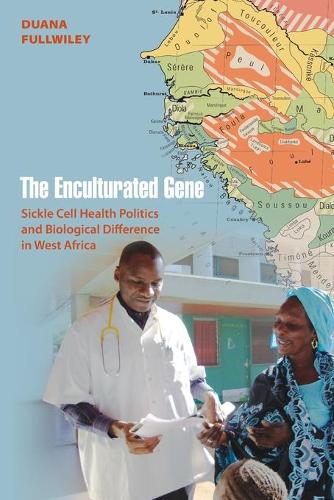
The Enculturated Gene: Sickle Cell Health Politics and Biological Difference in West Africa
(Paperback)
Publishing Details
The Enculturated Gene: Sickle Cell Health Politics and Biological Difference in West Africa
By (Author) Duana Fullwiley
Princeton University Press
Princeton University Press
6th February 2012
United States
Classifications
Tertiary Education
Non Fiction
616.0096
Physical Properties
Paperback
368
Width 152mm, Height 235mm
454g
Description
In the 1980s, a research team led by Parisian scientists identified several unique DNA sequences, or haplotypes, linked to sickle cell anemia in African populations. After casual observations of how patients managed this painful blood disorder, the researchers in question postulated that the Senegalese type was less severe. The Enculturated Gene traces how this genetic discourse has blotted from view the roles that Senegalese patients and doctors have played in making sickle cell "mild" in a social setting where public health priorities and economic austerity programs have forced people to improvise informal strategies of care. Duana Fullwiley shows how geneticists, who were fixated on population differences, never investigated the various modalities of self-care that people developed in this context of biomedical scarcity, and how local doctors, confronted with dire cuts in Senegal's health sector, wittingly accepted the genetic prognosis of better-than-expected health outcomes. Unlike most genetic determinisms that highlight the absoluteness of disease, DNA haplotypes for sickle cell in Senegal did the opposite. As Fullwiley demonstrates, they allowed the condition to remain officially invisible, never to materialize as a health priority. At the same time, scientists' attribution of a less severe form of Senegalese sickle cell to isolated DNA sequences closed off other explanations of this population's measured biological success. The Enculturated Gene reveals how the notion of an advantageous form of sickle cell in this part of West Africa has defined--and obscured--the nature of this illness in Senegal today.
Reviews
Winner of the 2011 Amaury Talbot Prize for African Anthropology, Royal Anthropological Institute "Duana Fulwilley has produced an extraordinary work that incorporates the insights of anthropology as well as science and technology studies of genetics and race. It is also exceptional in its multi-sited focus on Senegal and France, since many similar studies of genetics have tended to focus on the US and Europe."--Elisha P. Renne, Anthropological Quarterly "The Enculturated Gene is the product of over ten years of research beginning in the late 1990s. The book is stunning in its scope and attention to a full range of issues, from discoveries in the lab to knowledge production in the clinic to global health responses... By elucidating ethnographically the contingencies that have produced the local and global health responses to sickle cell disease, Fullwiley shows us that health policy is as much a product of culture and subjectivity as affective responses to physical and existential pain."--Medical Anthropology Quarterly
Author Bio
Duana Fullwiley is associate professor of anthropology at Stanford University.
